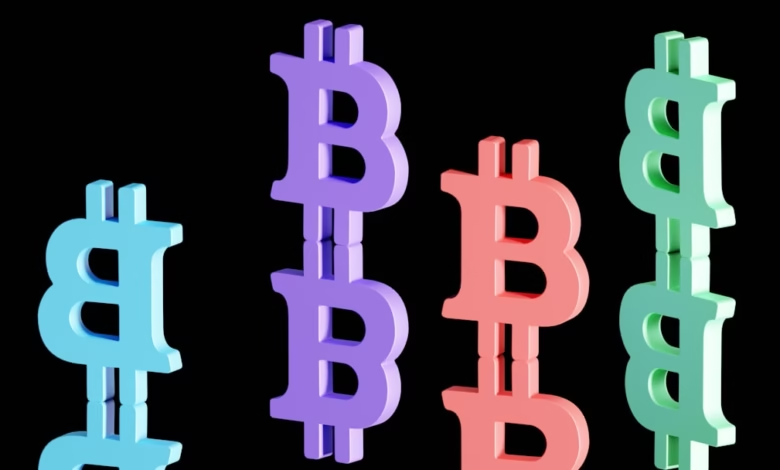Unlocking the Power of Blockchain Technology: From Cryptocurrency Foundations to Decentralized Finance, NFTs, and Social Impact Applications

Blockchain technology has emerged as the backbone of the cryptocurrency revolution, powering everything from Bitcoin to stablecoins and beyond. While most people associate blockchain primarily with crypto trading and digital currencies, its decentralized, transparent, and secure structure is reshaping industries far beyond the financial sector. As cryptocurrency adoption accelerates and decentralized finance (DeFi) solutions disrupt traditional banking, blockchain technology is increasingly at the center of innovation—from yield farming and staking to secure crypto wallets and privacy coins.
But the influence of blockchain goes even further. Today, this technology is fueling new frontiers like NFTs, empowering gaming and crypto collaborations, and laying the groundwork for immersive experiences in the metaverse. Blockchain’s unique characteristics enable secure asset ownership, cross-border payments, and novel economic models that were unimaginable just a few years ago.
The technology’s potential isn’t limited to commerce and entertainment—blockchain is also driving social impact and sustainability in crypto through the rise of smart contracts, decentralized autonomous organizations (DAOs), and transparent governance models. As crypto taxation, regulation, and cybersecurity in crypto evolve, blockchain continues to adapt, supporting everything from ICOs and token offerings to Web3 development and crypto startups.
In this article, we explore how blockchain technology moves beyond being the foundation of cryptocurrencies and becomes a catalyst for innovation across decentralized finance, gaming, digital art, sustainable solutions, and more.
- 1. From Cryptocurrencies to Decentralized Finance: How Blockchain Technology is Revolutionizing Financial Systems
- 2. Beyond Crypto Trading: Exploring Blockchain’s Role in NFTs, Gaming, and the Metaverse
- 3. Smart Contracts, DAOs, and Sustainable Solutions: The Expanding Social Impact of Blockchain Applications
1. From Cryptocurrencies to Decentralized Finance: How Blockchain Technology is Revolutionizing Financial Systems
Blockchain technology has rapidly evolved from powering cryptocurrencies like Bitcoin and Ethereum to fundamentally reshaping global financial systems through a movement called decentralized finance (DeFi). Initially, blockchain served as the backbone of cryptocurrency by providing a secure, transparent, and immutable ledger, facilitating peer-to-peer transactions without intermediaries. This disruption laid the foundation for more complex financial innovations.
DeFi platforms are ushering in a new era of financial inclusion by enabling users to access services like lending, borrowing, and yield farming directly from their crypto wallets—eliminating banks and other traditional gatekeepers. The use of smart contracts automates these processes, ensuring transparency, efficiency, and reducing costs associated with traditional finance. These programmable contracts also drive decentralized exchanges, riding a wave of increased crypto adoption and fueling new opportunities for crypto startups.
Token offerings such as ICOs and emerging alternatives provide novel funding routes for businesses, while stablecoins help mitigate volatility for both users and investors. Tokenomics—the economic design behind digital assets—plays a crucial role in incentivizing staking and liquidity provision, encouraging broader participation in crypto trading and DeFi applications.
Cross-border payments, traditionally slow and expensive, are now faster, more affordable, and accessible thanks to blockchain-powered solutions. Privacy coins offer enhanced transaction confidentiality, while cybersecurity in crypto remains a core concern for individuals and institutions managing digital assets.
Regulatory discussions around crypto regulations and crypto taxation continue to evolve as governments seek to balance innovation and consumer protection. Central bank digital currencies (CBDCs) are also emerging, leveraging blockchain’s security and traceability to digitize national currencies.
Layer 2 solutions help address scalability and transaction bottlenecks, making blockchain technology more suitable for the growing number of applications beyond digital currencies. The integration of blockchain in sectors such as gaming and crypto, NFTs, DAOs, and even metaverse ecosystems showcases its versatility.
As DeFi matures, ongoing crypto market analysis, the sustainable development of blockchain networks, and the social impact of blockchain technology are crucial for ensuring a fair and robust financial infrastructure for the future.
2. Beyond Crypto Trading: Exploring Blockchain’s Role in NFTs, Gaming, and the Metaverse
As blockchain technology evolves past its origins in cryptocurrency and crypto trading, its innovative capabilities are transforming industries ranging from art to interactive entertainment. One of the most notable expansions is in the world of Non-Fungible Tokens (NFTs), where smart contracts and tokenomics enable unique digital assets to be created, traded, and authenticated on-chain. NFTs aren't just digital collectibles; they're reshaping how creators monetize content, how gamers own assets, and how communities participate in decentralized finance beyond traditional crypto wallets and yield farming.
In the gaming industry, blockchain unlocks true digital asset ownership. Unlike conventional in-game purchases, blockchain-based assets can be openly traded, staked, and even transferred across multiple platforms, thanks to interoperable technologies and Web3 development. This fosters new gaming economies—powered by utility tokens and, in some cases, stablecoins—that let players earn rewards and participate in decentralized autonomous organizations (DAOs) governing game ecosystems. Gaming and crypto collaborations are also advancing sustainability in crypto by encouraging more energy-efficient consensus mechanisms and digital asset designs.
The metaverse is another frontier where blockchain and cryptocurrencies are driving innovation. Virtual worlds built on decentralized infrastructure depend on blockchain’s secure records and interoperability, ensuring trustless ownership of land, items, and identities. Crypto wallets act as digital passports and asset vaults, while decentralized finance protocols facilitate seamless transactions through layer 2 solutions that improve speed and reduce costs. Crypto startups are pushing boundaries with token offerings and initial coin offerings (ICOs) to raise capital for these immersive experiences, while privacy coins and enhanced cybersecurity in crypto help safeguard users from evolving risks in expansive digital ecosystems.
Crucially, these developments are prompting new approaches to crypto regulations and crypto taxation, as well as broad discussions on the social impact of blockchain. From more inclusive digital economies to cross-border payments and transparent charitable causes, blockchain’s role in NFTs, gaming, and the metaverse demonstrates its growing potential far beyond crypto mining and traditional finance—fueling new waves of crypto adoption and reshaping the future of digital interactions.
3. Smart Contracts, DAOs, and Sustainable Solutions: The Expanding Social Impact of Blockchain Applications
Blockchain technology is not only revolutionizing the financial sector through cryptocurrency and decentralized finance (DeFi), but it is also generating considerable social impact through innovative applications like smart contracts and Decentralized Autonomous Organizations (DAOs). These developments are unlocking a host of sustainable solutions that reach far beyond digital currencies or crypto trading.
Smart contracts are self-executing agreements coded on the blockchain. Once predefined conditions are met, these contracts automatically enforce the agreement, reducing the need for intermediaries and enhancing transparency. In sectors such as supply chain management, energy trading, and even nonprofit fundraising, smart contracts are facilitating trustless transactions and automating complex processes. For example, programmable protocols can enable direct, transparent allocation of charitable donations with real-time tracking and accountability, helping combat fraud and increase donor confidence.
DAOs represent another leap forward in the application of blockchain technology. These organizations operate without centralized leadership, using smart contracts and token-based governance to facilitate collective decision-making. Crypto startups frequently experiment with DAOs to raise funds through ICOs, token offerings, or distributed investment pools. By engaging a global community of stakeholders, DAOs are experimenting with democratic governance models that foster community-driven innovation, resource allocation, and social impact blockchain initiatives.
Sustainability in crypto is becoming an urgent priority as concerns about energy consumption from crypto mining and NFTs grow. Blockchain platforms are now exploring eco-friendly alternatives—including energy-efficient consensus mechanisms, such as proof-of-stake (PoS) and layer 2 solutions. Yield farming and staking not only incentivize users to support these networks in a greener way, but also provide passive income through crypto wallets, encouraging long-term participation over speculative trading. Moreover, blockchain’s ability to transparently track the provenance and lifecycle of goods can aid supply chain sustainability, while tokenomics can be tailored to support environmental projects through carbon credits and impact tokens.
These blockchain developments are also boosting financial inclusion, reducing barriers to crypto adoption by enabling cross-border payments, stablecoins for remittances, and more equitable access to crypto market analysis tools. As the sector evolves, addressing cybersecurity in crypto, implementing effective crypto regulations, and ensuring clarity on crypto taxation will be critical for sustainable growth. Web3 development and the rise of the metaverse and crypto further expand the possibilities for decentralized, socially impactful platforms, paving new paths for digital identity, governance, and even gaming and crypto intersections with real-world benefits.
In essence, the expanding ecosystem of smart contracts, DAOs, and sustainable blockchain solutions highlights the powerful role blockchain plays in driving social change, promoting transparency, and empowering communities worldwide.
Conclusion
Blockchain technology is rapidly proving itself to be much more than just the backbone of the cryptocurrency ecosystem. While it first gained prominence through applications in crypto trading, crypto wallets, and stablecoins, its influence now runs far deeper, driving innovation in decentralized finance (DeFi) and giving rise to transformative avenues like NFTs, gaming and crypto integrations, and expansive metaverse experiences. This ongoing evolution is magnified by new developments such as smart contracts, DAOs, and sustainable blockchain applications, all of which point to a growing social impact beyond digital assets.
As blockchain adoption accelerates, enterprises and individuals must navigate challenges related to crypto regulations, crypto taxation, cybersecurity in crypto, and the complexities of tokenomics. From enabling seamless cross-border payments and CBDCs to powering crypto startups through ICOs and token offerings, the technology is reshaping global markets and traditional systems. Innovations in layer 2 solutions, Web3 development, and sustainability in crypto further indicate a future where blockchain applications become ubiquitous and increasingly inclusive.
The continued rise of privacy coins, yield farming, staking, and sophisticated crypto market analysis tools highlight blockchain’s potential to empower users while addressing pressing issues of transparency, efficiency, and environmental responsibility. As new use cases and sustainable solutions emerge, blockchain’s foundational role in building secure, decentralized, and equitable digital realms is clearer than ever. Embracing this momentum will be key for those seeking not only to participate in, but also to shape, the future of finance, technology, and society itself.
References
[List all sources here in APA format]




